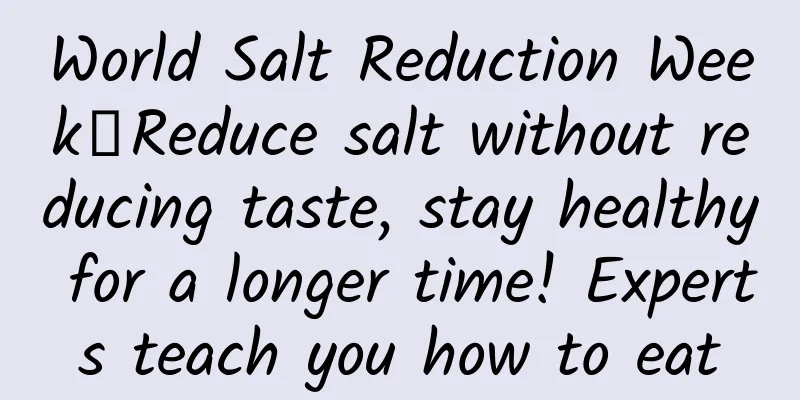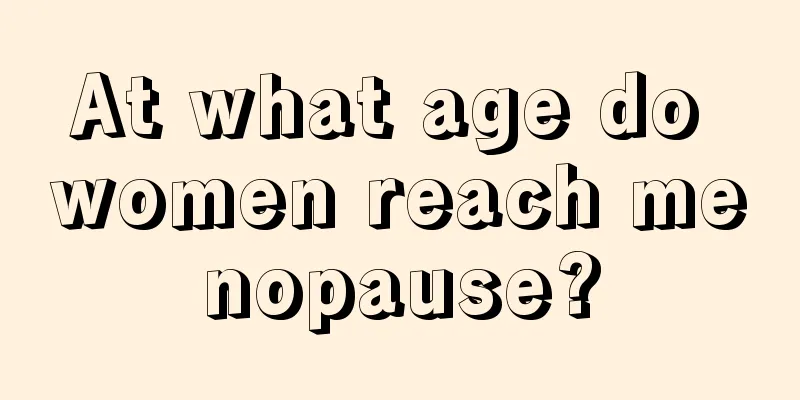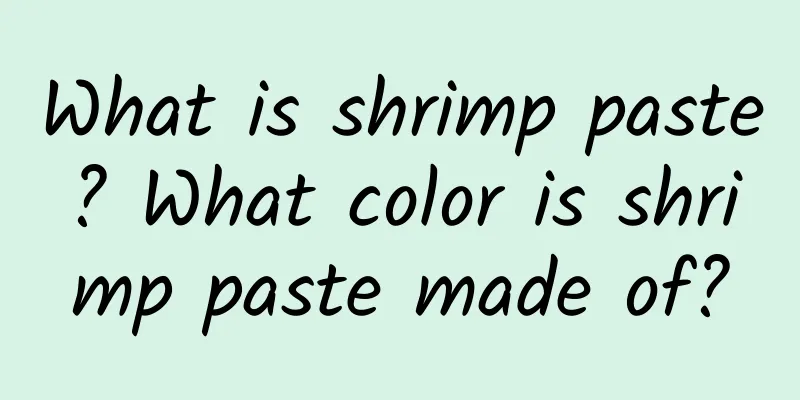World Salt Reduction Week丨Reduce salt without reducing taste, stay healthy for a longer time! Experts teach you how to eat

|
March 14th to 20th every year is World Salt Reduction Week, which aims to raise public awareness of the dangers of a high-salt diet and advocate reducing salt intake to promote a healthier lifestyle. Salt is an indispensable condiment in daily diet, but excessive intake may become an "invisible killer" of health. Director Zhu Wei of the Acupuncture and Massage Department of Hunan Provincial Hospital of Integrated Traditional Chinese and Western Medicine (Affiliated Hospital of Hunan Institute of Traditional Chinese Medicine) will explain the importance of salt control and help everyone easily achieve "reducing salt without reducing taste". The dangers of excessive salt intake are more serious than you think1. "Accelerator" of hypertension Excessive intake of sodium ions can lead to water retention in the body and increase blood vessel pressure. A long-term high-salt diet is an important cause of hypertension. 2. Doubled risk of cardiovascular disease Hypertension will further damage the vascular endothelium, accelerate arteriosclerosis, and increase the risk of diseases such as myocardial infarction and stroke. 3. Increased burden on kidneys The kidneys are the core organ for regulating sodium balance. Long-term high-salt diet may cause kidney damage and even induce chronic kidney disease. 4. Calcium loss and gastric mucosal damage A high-salt diet will accelerate the excretion of urinary calcium and increase the risk of osteoporosis; at the same time, it will stimulate the gastric mucosa and increase the risk of gastritis and gastric cancer. Practical salt reduction tips: scientific salt control without pitfalls1. Learn to identify "invisible salt" Processed foods: Noodles, bread, cured meats, and sauces (such as bean paste and salad dressing) are high in salt, so you need to check the "sodium" content in the nutritional label. Snack trap: Snacks such as plums, potato chips, and spicy strips are big salt storages. It is recommended to choose original nuts and salt-free dried fruits and vegetables instead. 2. Use natural seasonings Use natural seasonings such as lemon juice, vinegar, tomatoes, coriander, ginger, garlic, and peppercorns instead of salt to increase the flavor of food. 3. Change your cooking habits Add salt before serving, reducing the amount will still retain the salty taste; Avoid adding heavy flavors. For example, if braised dishes already contain soy sauce, you don’t need to add salt. Use steaming, boiling, and cold dishes more often, and use less high-salt methods such as braising and stewing. 4. Eat more foods rich in potassium Potassium helps balance the sodium content in the body and lowers blood pressure. You can eat more oranges, bananas, spinach, sweet potatoes, milk, etc. Common misunderstandings clarifiedMisconception 1: “Not eating salty food = low salt”? Sweet foods (such as cakes and drinks) may also contain sodium, and you need to be wary of complex additives in processed foods. Myth 2: “Children do not need salt restriction” The kidneys of infants and young children are not fully developed, so there is no need to add salt to complementary foods before the age of one year. A high-salt diet in childhood may affect the development of taste. Myth 3: "If you sweat a lot, you need to take more salt" Unless you exercise at a high intensity or sweat a lot, your daily diet can meet your sodium needs and no additional supplement is needed. Take action: Start with Salt Reduction Week to protect the health of your whole familyThe WHO recommends that adults consume no more than 5 grams of salt per day, but the actual intake of Chinese residents is as high as 10.5-12 grams, ranking among the highest in the world. Reducing salt intake needs to be gradual. It is recommended that families prepare a "salt control spoon" to gradually reduce the daily salt intake from 10 grams to 5 grams. Experts adviseDirector Zhu Wei of the Acupuncture and Massage Department reminds everyone to remember this mantra: Hold a 3-gram salt spoon in your hand and keep a close eye on the invisible salt; use natural spices as a clever substitute to lead a healthier life! Through scientific salt control, we can not only reduce the risk of disease, but also reawaken the taste buds' true perception of food. Less salt is a gentle promise to the body. From today, let health start with "reducing a little salt"!
(Edited by YT) |
>>: Battle against tooth decay! -- Scientific tooth care protects your child's bright smile
Recommend
What are the nutritional values of noodles with soybean paste? What dishes are good to eat with noodles with soybean paste?
Old Beijing's fried noodles with soybean past...
KCC: As of October 2011, the number of smartphone users in South Korea exceeded 20 million
October 31, 2011 South Korea's telecom regula...
The new coronavirus vaccine is on the market, but you still don’t understand the vaccine?
This article was first published by Hey Stone Hea...
How many calories are there in whole wheat steamed bread? How to make steamed bread with whole wheat flour?
Modern people generally eat refined rice and flou...
What to do if a pregnant woman has no milk
Since everyone's physique is different, some ...
When is the best time to do angiography?
Contrast examination is a very effective examinat...
Can pregnant women sleep with electric blankets after a power outage?
When the weather is cold, if there is heating at ...
How to detect signs of labor in pregnant women
There are always some symptoms before a pregnant ...
A famous actress died of influenza! Doctors urgently remind: If these conditions occur, please seek medical attention immediately!
According to multiple media reports on February 3...
What causes itching in female pubic hair?
For women, it is important to pay attention to th...
How tall should a girl be at the age of ten?
Many ten-year-old girls have entered puberty. Gir...
Can you get Toxoplasma gondii by eating cat feces? Who made up such a disgusting rumor?
If you have a cat, you have probably heard of Tox...
Can women practice yoga during menstruation?
Many women who like to exercise will practice yog...
Women often feel dizzy and nauseous
With the development of society, the acceleration...
Monkeypox is once again a global threat. Is it a sexually transmitted disease?
Monkeypox is the second virus, after Ebola, to co...









